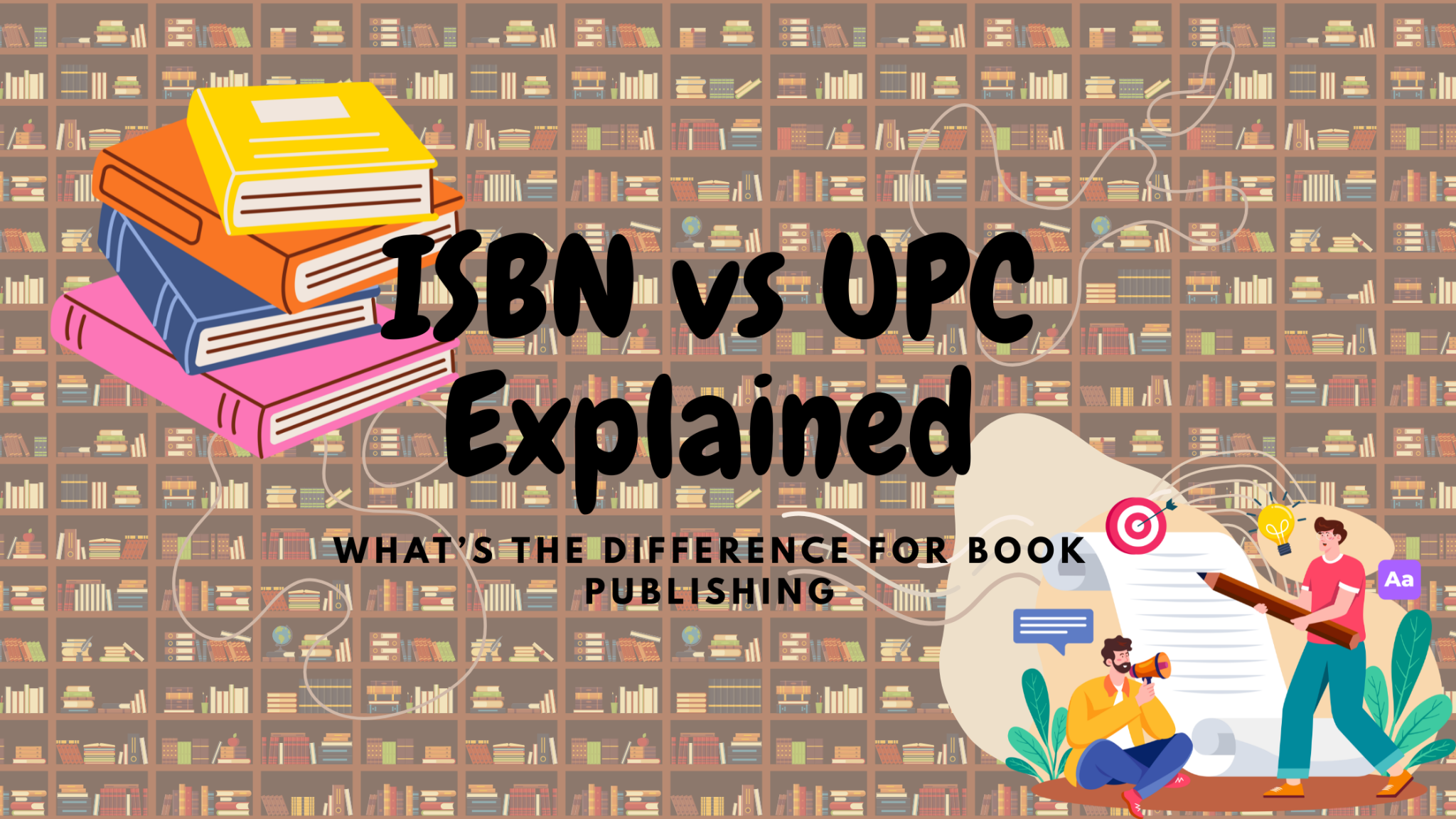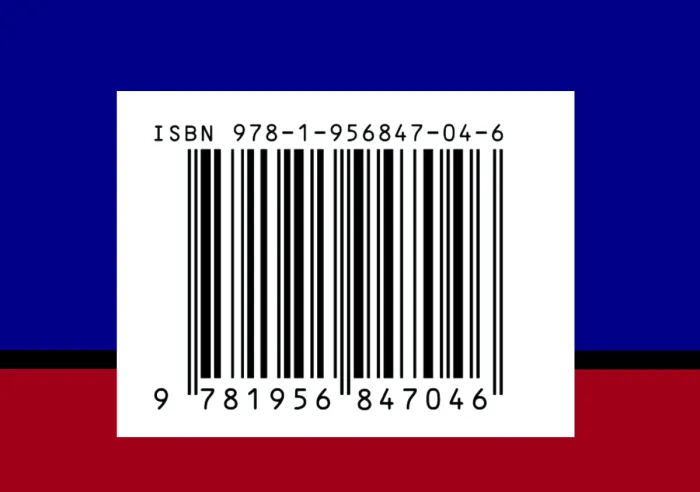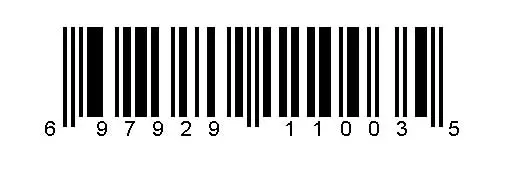
In the world of book publishing, especially for self-publishers and independent authors, understanding the technical side of selling a book is just as important as writing it. Two key identifiers that often cause confusion are the ISBN (International Standard Book Number) and the UPC (Universal Product Code). While they may seem similar, they both involve barcodes and help with tracking and selling, they serve distinct purposes and are used in different contexts.
This article will explore the differences between ISBN and UPC, when and why each is used in book publishing, and how to choose the right one for your publishing goals.

ISBN stands for International Standard Book Number. It is a 13-digit unique identifier used to identify books and book-like products (e.g., eBooks, audiobooks). Every edition and variation of a book (print, eBook, hardcover, softcover, etc.) must have its own ISBN.

UPC stands for Universal Product Code. It is a 12-digit barcode used primarily in retail environments to track products and sales, especially through point-of-sale (POS) systems. While it’s widely used for physical products, like food, electronics, clothing, it can also be used for books sold in non-bookstore retail settings (e.g., supermarkets, big-box stores).
| Feature | ISBN | UPC |
| Full Name | International Standard Book Number | Universal Product Code |
| Purpose | Identifies books and their editions | Identifies retail products |
| Digit Count | 13 digits (formerly 10) | 12 digits |
| Format Specific? | Yes—each edition/format needs its own | No—one UPC can represent one SKU |
| Use Case | Publishing industry | General retail industry |
| Used By | Libraries, bookstores, online platforms | Retailers, POS systems |
| Barcode Type | EAN-13 (Europe/International) | UPC-A |
| Assigned By | ISBN Services (U.S.), Nielsen (UK), etc. | GS1 |
| Required For | Book sales through publishing channels | Retail sales outside of bookstores |
Use an ISBN if:
An ISBN is essential for professional publishing. It also gives your book credibility and ensures it’s properly cataloged in publishing databases like Books in Print.
Use a UPC if:
Keep in mind that if your book already has an ISBN, some retailers may still require a UPC barcode if they don’t use ISBNs in their system.
Yes. In fact, many publishers do.
A common practice is to:
This setup is typical of mass-market books intended for both bookstores and retail stores.
| Identifier | Where to Get It (U.S.) | Notes |
| ISBN | ISBN Services | Buy in bulk to save money |
| UPC | GS1 US | You’ll get a company prefix and product numbers |
Once you have your ISBN (and optional UPC), you need to generate a barcode image for your book cover.
You can:
Make sure the barcode includes the ISBN with the price add-on (for books), and optionally the UPC, depending on where you’ll be selling the book.
Choosing between an ISBN and a UPC depends largely on where and how you plan to sell your book. An ISBN is essential for bookstores, libraries, and online platforms, while a UPC is helpful for retail stores and bundled product tracking. In some cases, using both might be the best strategy for maximum market access.
Understanding the role of each code ensures that your book is professionally published and easy to find, buy, and track, no matter the sales channel.
Yes, if you want to sell your eBook on platforms like Apple Books, Google Play, or distribute it widely. Amazon assigns its own ASIN if you don’t use an ISBN, but it’s not recognized outside Amazon.
No, you must register through GS1 to get a legitimate UPC. Self-generated codes may not be accepted by major retailers.
That’s the ISBN barcode, usually with a price code. Sometimes a UPC is printed beside it for retail sales.
Not legally, but highly recommended. Without one, your book won’t be listed in bibliographic databases or bookstores.
No. ISBNs and UPCs are unique to a specific product and edition. Reusing them causes major cataloging and retail issues.
